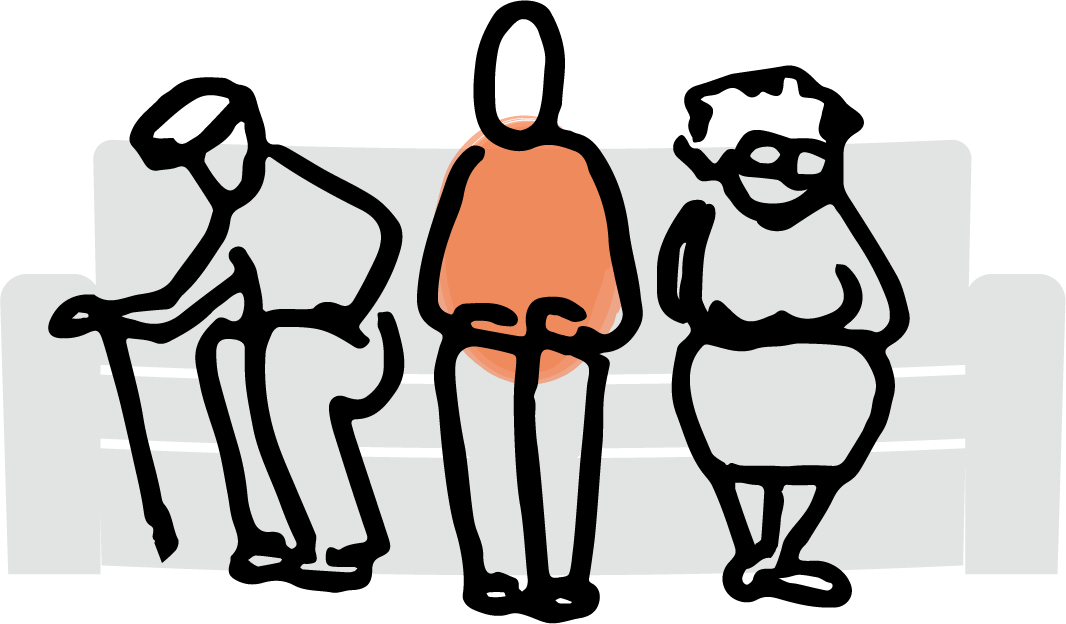Waiting Only Makes Things Worse
Three Things with Dr. Hope Lanter.
What do older adults and their families find out about hearing loss that they wish they knew earlier?
That’s the question I asked audiologist Dr. Hope Lanter, who found her calling when she witnessed how hearing aids changed her grandmother’s life.
Here, in her own words, are three things Dr. Hope wants you to know:
1. Hearing loss is connected to overall health.
Hearing loss affects more than your parent’s ability to hear clearly. It’s an indication of how their body is functioning, and it can greatly affect physical and mental health.
For starters, there is a connection between untreated hearing loss and increased risk for falls, cognitive decline, social isolation, and depression.
Hearing is a cognitive function. When the brain doesn’t get the audible sensory input it needs, it works overtime to process information. That strain affects the brain’s ability to support other cognitive functions, like balance.
Research shows that even mild hearing loss can triple fall risk and accelerate dementia. Sometimes hearing loss can also be an early warning sign of diabetes.
Most people do not understand how deeply hearing loss is connected to overall health. If they did, they would not wait so long to treat it.
2. Waiting only makes things worse.
Hearing loss is sneaky. It usually takes years for someone to notice. And once they do, research shows it takes an average of seven to 10 years before they actually do something about it.
That’s a huge problem, because waiting only makes things worse. The brain is a use it or lose it place. If you deprive the brain of even just a portion of the auditory stimulation it needs, there are consequences.
Let’s say you have high-pitch hearing loss. You can still hear and understand most words, so it’s easy to trick yourself into believing there’s no problem. But over time speech gets harder to understand, especially in noisy environments. And trying to communicate gets frustrating for everyone.
I had a patient who came in year after year after year. I kept saying ‘you’ve got to do something.’ He kept saying, ‘Nope, not until it gets a lot worse.’ But when he finally decided it was time, it was too late. After years of auditory deprivation, hearing aids could only provide limited benefit.
Time matters. Even if Mom has mild hearing loss, she is more likely to have more positive results from treatment than someone who waits longer to get help.
3. Hearing aids take time (and they aren’t perfect)!
It takes the brain a long time to adjust to hearing loss. And when you start using hearing aids, it takes time for your brain to relearn how to process all that sound. Typically, that rehabilitation takes around 30 days.
That’s why most people say the first day isn’t great. They’re disappointed because they’re expecting perfection, especially if they invest in prescription hearing aids.
Realistic expectations are essential — even with today’s advanced hearing aid technology. And everyone’s results are different. If Dad expects to hear every single word, that may not be the case. Again, the amount of time your parent waits to get help matters.
So does consistency. If the only time your parent takes their hearing aids out of the drawer is for family get-togethers, they are not going to have the best outcome.
In fact, their new sound awareness is likely to feel overwhelming at first. That sensation usually fades as the brain learns how to process sound again — and that requires consistent use.
Yes, your parent will have some immediate benefit. But the real gains take time, patience, and persistence.
For More:
- Dr. Hope for Hearing (Facebook)
Thanks for caring,

New to My Aging Parents?
Join us for practical tips and strategies to help you meet the challenges of helping your aging parents. Hand picked and delivered by email biweekly.
No charge. No spam. Unsubscribe anytime.
